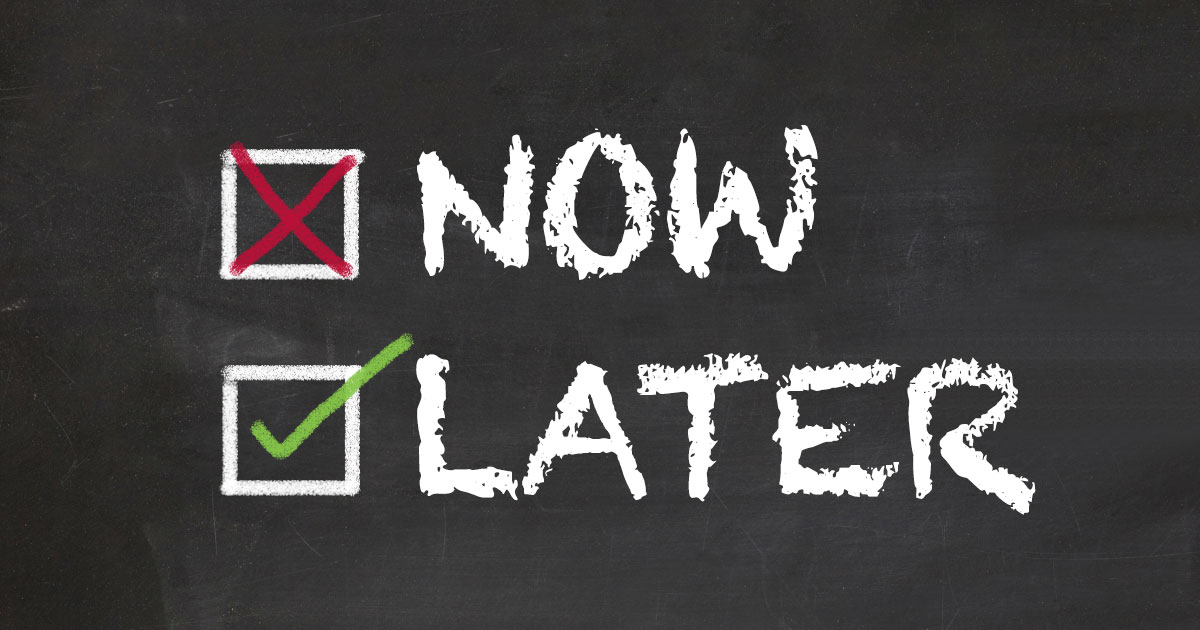Is Procrastination Always Bad?
Now? No. Later!
In school, teachers usually tell the students not to leave their projects or homework until the last minute. Good time management is widely promoted by teachers so that students will be able to manage their time better and produce better results in class. But is procrastination always bad?
There are certain benefits when the students procrastinate to a degree. First, working at the last-minute puts pressure on the students, forcing them to focus. This will allow the students to work more efficiently. Second, the students will have to lower the expectations they have towards themselves due to a time limit, leading to increase in the students’ self-esteem. Erdinc Duru and Murat Balkis conducted a study at the Pamukkale University to find the correlation between procrastination and self-esteem. As a result, they found evidences suggesting that self-esteem conciliated the relationship between procrastination and well-being.
Taking a deep breath and keeping a distance from the project will allow one to think more broadly. In one Gallup survey named “Who dreams, perchance to sleep?”, the results showed that sleep deprivation increased errors on visual attention tasks, which led to poor quality of work. This shows how people should rest in between and procrastinate to a certain degree such that they can produce a better outcome.
However, this does not necessarily mean that procrastination is a good thing and that the students should procrastinate all the time. Many disadvantages still exist. Lowering expectations may lead to poor performance; procrastinating too much may lead to poor time management. Also, not having enough time to revise or review the result will not encourage one to be aware of the mistakes he or she makes an advance by learning them. Based on the article written by Ulrich S Tran who researched procrastination, there is a moderate to a strong negative correlation between procrastination and life satisfaction, depression, and anxiety. This shows how working under pressure might not be the best way to study.
The degree as into how much one should procrastinate usually depends on the type of the work. If the work involves creativity or complex thinking, taking enough time to slowly think about it will definitely improve the standard. Professor Shin, who is a professor at the University of Wisconsin, conducted a survey and questioned how much the staff procrastinated and the bosses about how creative the staff members were. She found that those who procrastinated were often found to be most creative. Works such as “I have a Dream” speech written by Martin Luther King was also written at the last minute such that the speakers could have flexibility in improvising whilst on stage. In contrast, if it does not require much thought, but involves research or math knowledge, one should not procrastinate.
Given the pros and cons on both sides, one should procrastinate more intelligently. “It is always important to find a balance between two ideas that contrast each other,” stated Ken Kim (12B), “I surely believe that procrastinating to a certain degree will help students a lot in a variety of ways.”

